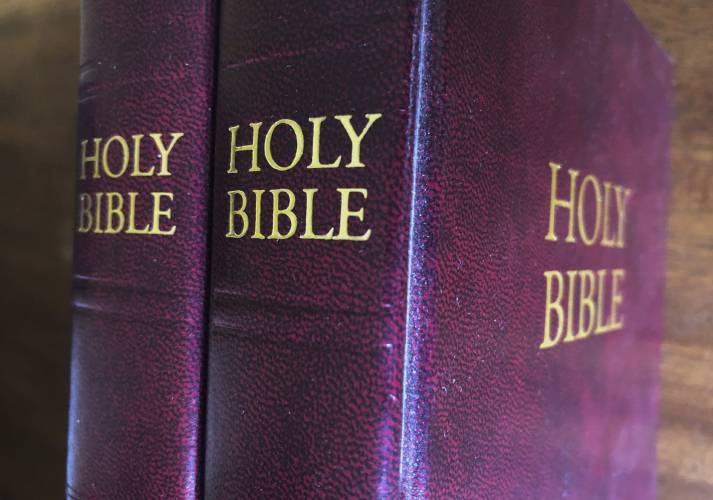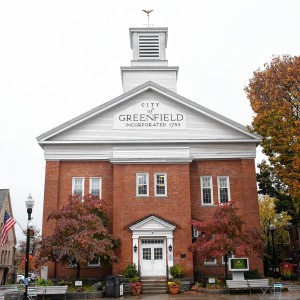My Turn: What the Bible tells us

AP PHOTO/MARTA LAVANDIER AP PHOTO/MARTA LAVANDIER
| Published: 07-03-2024 2:54 PM |
A number of years ago I tutored a Japanese student who attended a Massachusetts high school. One summer we read “The Adventures of Tom Sawyer” together and, at the mention of David and Goliath, I asked him if he knew the story. He didn’t, so the next time we met I brought a Bible, and we read the David and Goliath story together.
Later that summer — it was an Olympics year — a Japanese women’s team (perhaps volleyball) won an upset victory over an American team. “It was David and Goliath,” my student told me proudly.
Knowing the Bible is indeed indispensable to an understanding of Western culture: music, art, literature, law, and so on. Kids used to learn Bible stories in Sunday school, but many kids today don’t have that opportunity, and how to make up for this deficiency is certainly a conundrum.
An Oklahoma law requiring that the Bible to be taught in all public school classrooms has separation of church and state advocates, myself included, reeling. A selective reading of the Bible can justify just about anything. Exactly what in the Bible are Oklahoma teachers supposed to teach?
One shudders to think what, exactly, those legislators have in mind.
Many years ago, when Ronald Reagan’s government was supporting dictators and death squads in Latin America, I belonged to a group opposing those efforts in solidarity with groups in Latin America doing the same. At one point we heard testimony from people in South America who told us that their religious leaders had taught them that God had created the hierarchies that they lived under, that if they were poor, it was God’s will.
“Then,” they told us (and I am paraphrasing here), “we started reading the Bible for ourselves, and we realized that our poverty wasn’t God’s will at all.” This newfound insight became the basis of what would be called “liberation theology,” which reverberated throughout Latin America in the 1980s and beyond.
Article continues after...
Yesterday's Most Read Articles
The Oklahoma Legislature should be careful what it wishes for. It’s doubtful if any of those legislators have read much, if any, of the Bible. Its message is one of liberation, including women’s liberation, brotherly love, integrity, equal justice, welcoming and valuing strangers, as well as care and compassion for the poor, values many politicians lack, including those who profess to be good Christians — I’m talking to you, Mike Johnson— but values that should indeed be taught in our public schools.
Kathe Geist lives in Charlemont.






 Connecting the Dots: It comes to us all
Connecting the Dots: It comes to us all Ira Helfand: A bomb survivors warn of nuclear danger
Ira Helfand: A bomb survivors warn of nuclear danger Michelle Spaziani: High municipal employee turnover merits immediate review
Michelle Spaziani: High municipal employee turnover merits immediate review My Turn: Massachusetts’ health system is failing
My Turn: Massachusetts’ health system is failing
